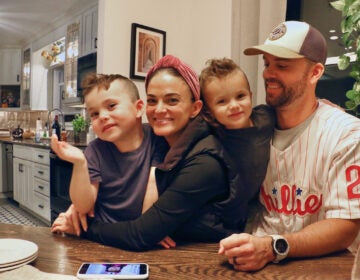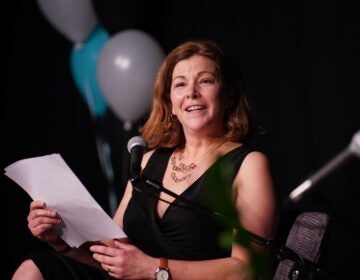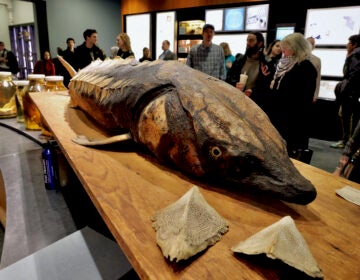‘Nothing is ordinary’: 10 years ago, ‘The Pulse’ was born and changed the way we learn about health and science
In 2013, WHYY sought to expand its health and science footprint, and “The Pulse” was born. Here’s how it evolved and how it looks today.
Listen 2:43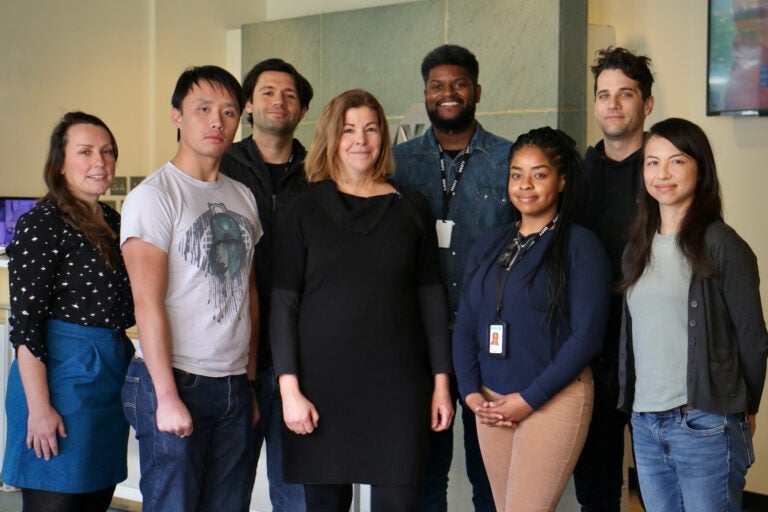
The Pulse team (from left) Senior Editor and Producer Lindsay Lazarski, Reporter Alan Yu, Reporter Grant Hill, Host and Executive Producer Maiken Scott, Health Equity Fellow Marcus Biddle, Producer Nichole Currie, Engineer Charlie Kaier, and Reporter Liz Tung. (Emma Lee/WHYY)
On Wednesday, Dec. 6, WHYY’s “The Pulse” reached 10 years on the air.
The weekly radio show and podcast takes listeners to “unexpected corners of the health and science world each week.”
Looking back, the team says they were simply creating a show for the curious. Today, it is a nationally known health and science podcast, built and housed at WHYY.
The first episode in 2013 looked into why medical bills are so expensive.
“Did you ever get a bill where a seemingly simple pill costs several hundred dollars?” Pulse host Maiken Scott asks.
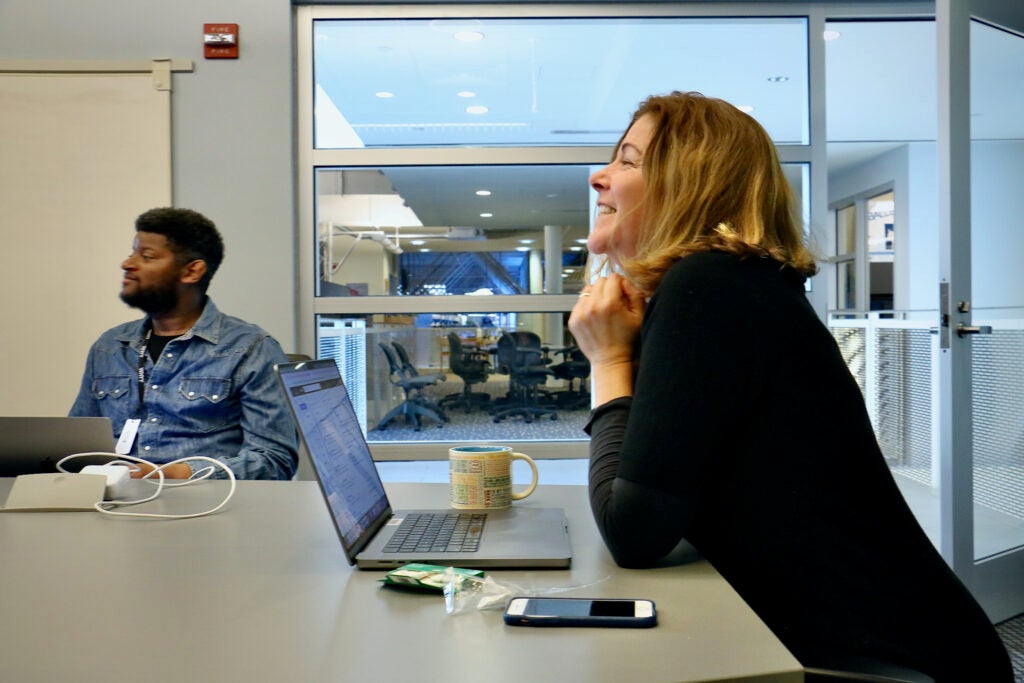
What began as an idea to build on the newsroom’s strong health and science coverage became a program that “answers questions you never knew you had.”
The program appealed to long-time WHYY supporters, like Barbara and Fred Sutherland.
“The show is very timely,” Barbara said. “For example, the recent program on resolving conflict or ultra-processed foods. It speaks to how to deal with certain issues — that we can apply to our lives.”
Because of this appeal, the Sutherlands have helped fund the show’s growth over the years, which made it possible for the show to expand its footprint nationwide.
“The fact that it’s now on over 100 stations is significant because these topics are just as relevant to people in Florida and Maine and Texas,” Fred said.
This ethos speaks to how Scott approaches her role as host and team lead, and how the team begins their reporting process.
Scott likes to take unique topics and dissect them with curiosity. She makes it clear that she does not have a science or health background. However, she confronts what she does not understand with a sense of wonder. “The Pulse” team gathers weekly to pitch ideas and topics, and from there, they shape the content of the themed episodes.
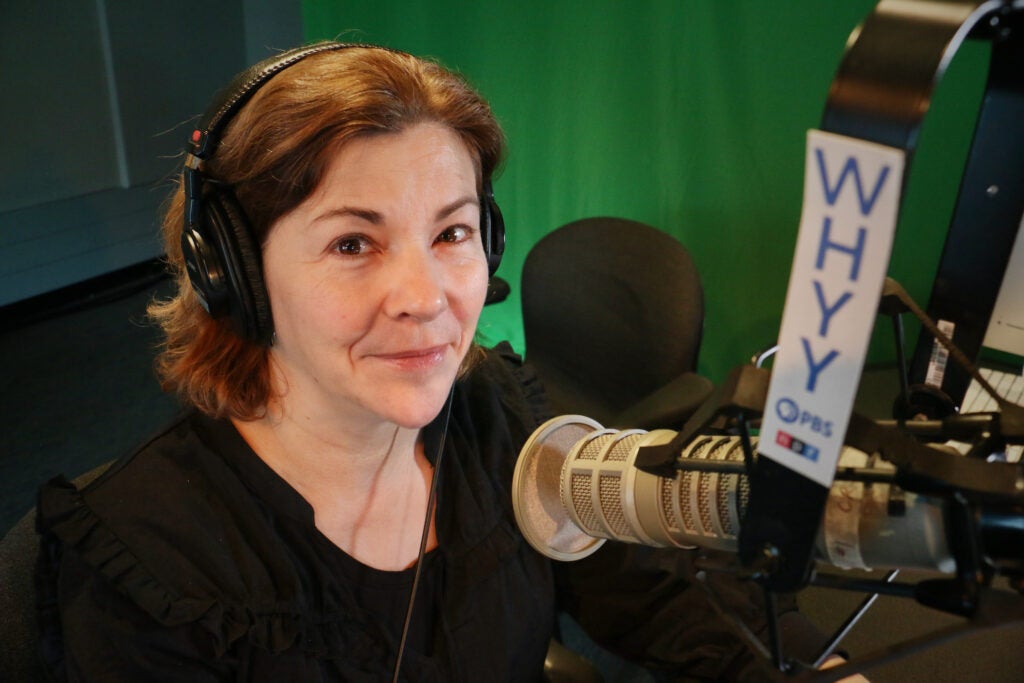
Once Scott records her script for an episode, audio engineer Charlie Kaier mixes the audio from the studio and in the field, and adds texture like music or sound effects so that it “pops in your ear.”
Over the past decade, the team’s process has been tested and tried, then refined. But it wasn’t always like that.
In the beginning, the creators pieced together a show from different elements, without a unifying theme. Kaier, who has been with “The Pulse” since the beginning, recalled the early days.
“[It was] definitely like we got thrown on the treadmill. We just had to keep up,” he said.
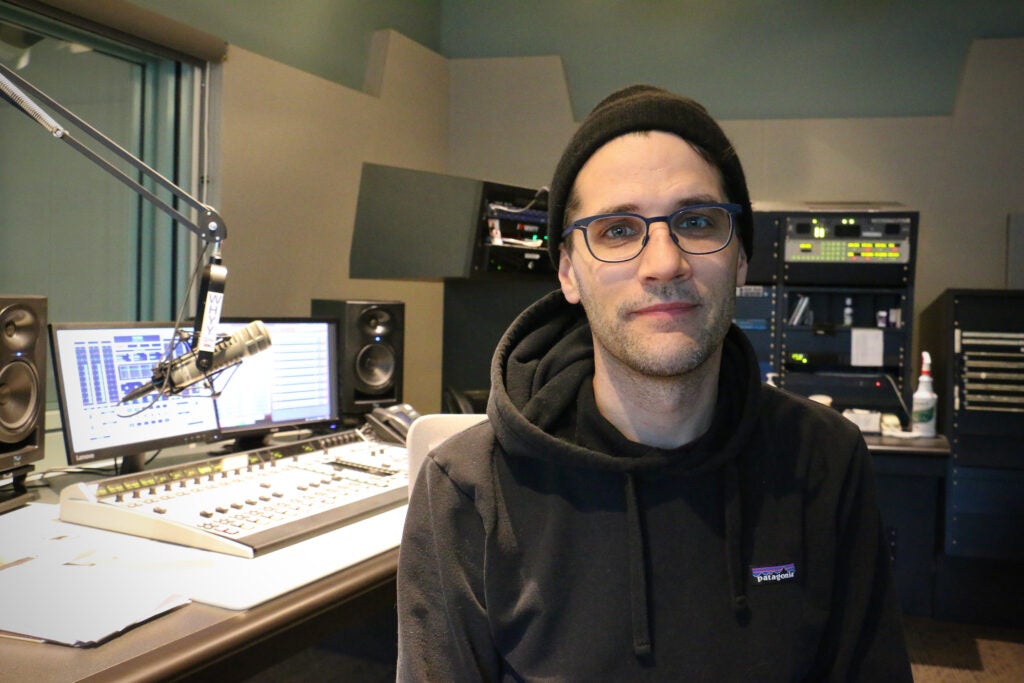
Now, the team has hit their stride. As an engineer, he gets to take a story and find subtle ways to amplify that story through sound design and thoughtfully placed music.
Reporters pitch stories about six weeks before they air in an episode, to allow for several edits and the production process.
And they’re always trying to find unique angles. “Since we have such a long planning process, it makes sense to try to lean into something that maybe is the path less traveled,” Scott told the team during a planning meeting.
During the pitch phase, the team shares a lot of ideas. The room buzzes when a topic strikes a chord.
In one pitch meeting, for instance, the group of eight sat in a conference room, laptop keyboards clicking and clacking. They were looking ahead, planning their shows for the Spring.
Topics ranged from barcodes to Amazon. Don’t worry, no spoilers here.
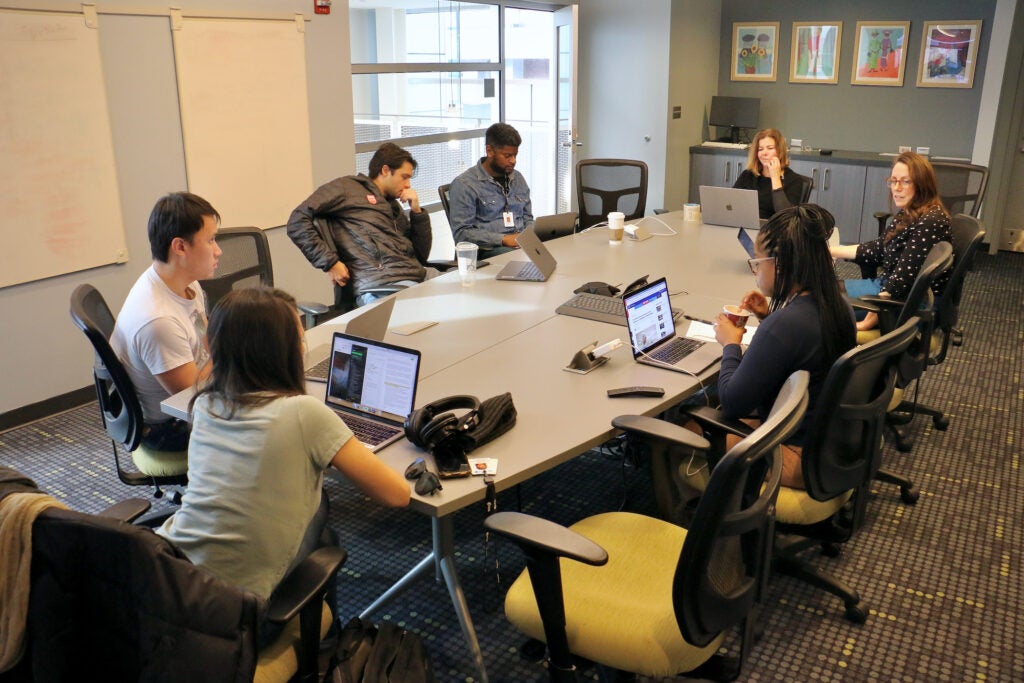
By the time a show is produced, the reporters, producers, and host have vetted, researched, and polished the idea. This gives listeners something easy to understand and to learn from.
They started simple, Kaier said, partly because they needed to translate ideas into a weekly show — and make that deadline. Over time, they found their rhythm, and a sense of camaraderie.
Pulse editors also accept work from national outlets and freelance journalists, which helps keep fresh ideas flowing.
One curious question begets the next.
The process has proved successful, earning the show numerous awards in its 10 years. Just this year, “The Pulse” was awarded a regional Murrow for an in-depth story about a controversial autism therapy called ABA, which stands for Applied Behavioral Analysis.
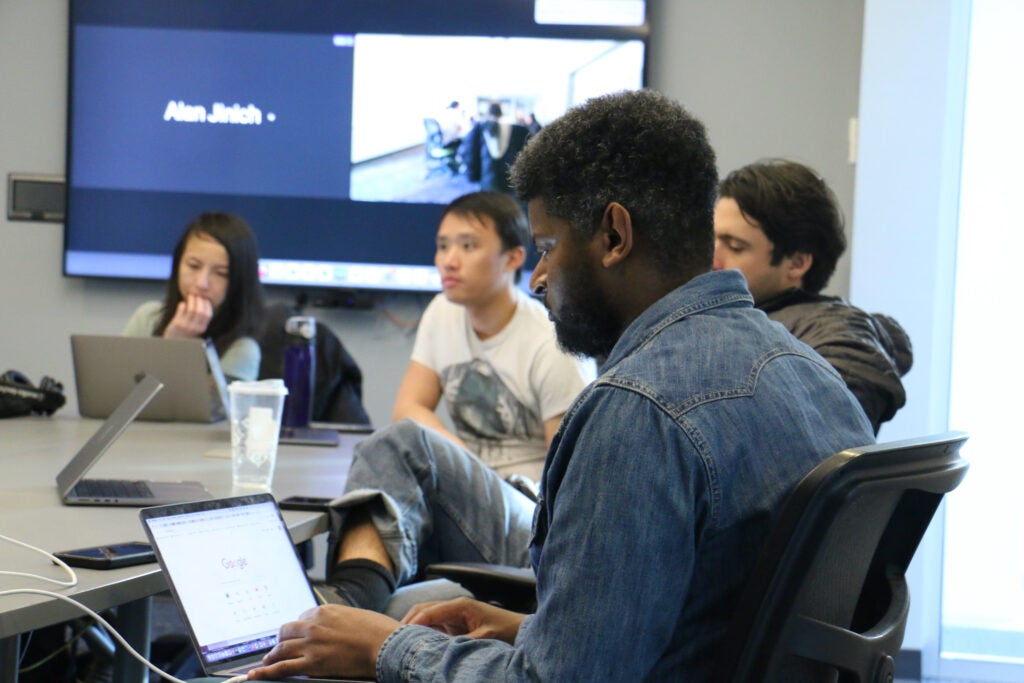
Even with those accolades, the host and the team are focused on one main thing: curiosity. That is what “The Pulse” teammates say sets this show apart from the rest.
“What we can really bring is … taking a look at stuff that maybe is right under our noses, but we haven’t thought about,” Scott said. “Really nothing is ordinary. There’s a good story in everything.”
Subscribe to The Pulse
WHYY is your source for fact-based, in-depth journalism and information. As a nonprofit organization, we rely on financial support from readers like you. Please give today.




